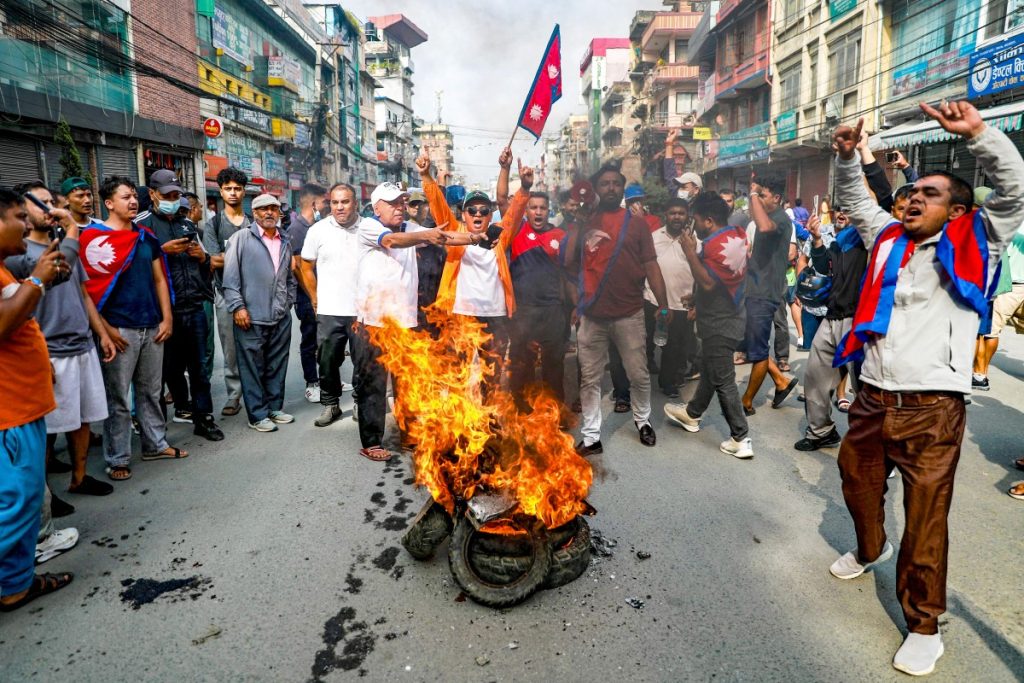Tough-talking Nepali leader Khadga Prasad Sharma Oli spent decades in communist politics and served as prime minister four times before resigning Tuesday, after deadly youth protests triggered by a ban on social media.
The 73-year-old quit shortly after angry protesters set fire to his house, writing in his resignation letter that he hoped it would help “towards a political solution and resolution of the problems”.
On Monday, after at least 19 people were killed in a police crackdown on protests against his government’s ban on unregistered social media, access to the apps was restored — but the demonstrations continued.
Protesters also set fire to parliament on Tuesday, and Oli’s whereabouts were not immediately clear.
The often outspoken head of the Communist Party of Nepal – Unified Marxist-Leninist (CPN-UML), formed a government with the backing of the centre-left Nepali Congress in 2024.
Oli, often known by his first initials “KP”, carefully crafted a cult-like image as his party’s supreme leader, with life-size cutouts and banners of “KP Ba (father), we love you” seen at his rallies.
– Authoritarian streak –
Political journalist Binu Subedi said he had “transformed the party’s image as his own”.
But an authoritarian streak emerged.
Subedi said Oli had considered his word as “final”, and rarely accepted criticism or suggestions, even from his own party.
Oli’s political career stretches nearly six decades, a period that saw a decade-long civil war, with Nepal abolishing its absolute monarchy in 2008 to become a republic.
Drawn into underground communist politics as a teenager, he was 21 when he was arrested in 1973 for campaigning to overthrow the king.
“I was sentenced to harsh imprisonment for 14 years, with four years of solitary confinement”, he wrote in a book of selected speeches.
He studied and wrote poetry in detention, penning his verses on cigarette boxes when he couldn’t access paper.
“My crime was that I fought against the autocratic regime,” Oli added.
“But this never deterred me, instead, it emboldened me to continue the struggle.”
After his release in 1987, he joined the CPN-UML and rose through the ranks, winning elections to parliament.
The veteran politician was first prime minister in 2015, before being re-elected in 2018 and reappointed briefly in 2021 in Nepal’s often turbulent parliament.
He previously said he recognises that “Marxism and Leninism cannot be a ready-made solution to every problem”.
In the Himalayan republic of some 30 million people, overshadowed by giant neighbours India and China, Oli previously trod a fine balance between the rivals.
He was cordial to both but reached out to Beijing to decrease Nepal’s dependence on New Delhi, with promises of economic growth helping him gain popularity.
Oli also stoked populist rhetoric against India, which is often portrayed as acting like an overbearing “big brother” to Nepal.
AFP
The post Nepal PM steps down as 19 confirmed dead in anti-corruption protests appeared first on Vanguard News.

